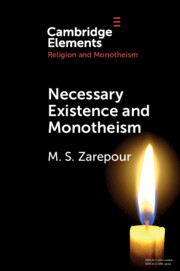Element contents
Necessary Existence and Monotheism
Published online by Cambridge University Press: 23 May 2022
Summary
- Type
- Element
- Information
- Online ISBN: 9781108938112Publisher: Cambridge University PressPrint publication: 09 June 2022
References
- 19
- Cited by

